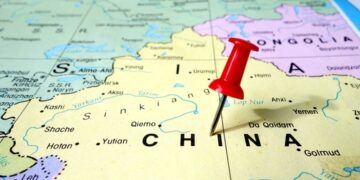The World Meteorological Organization (WMO) called IMO’s Maritime Safety Committee (MSC) to reintroduce the request for the recruitment of ships to provide ship-based marine meteorological and oceanographic observations. These reports provide real-time feedback on ocean weather conditions to weather forecasters. Ship-based oceanographic measurements also provide data for studying climate change.
According to IMO, ships’ meteorological observations are essential for safety-related services for ships at sea, but also for ships’ routeing, search and rescue, marine pollution prevention and climate change studies.
[smlsubform prepend=”GET THE SAFETY4SEA IN YOUR INBOX!” showname=false emailtxt=”” emailholder=”Enter your email address” showsubmit=true submittxt=”Submit” jsthanks=false thankyou=”Thank you for subscribing to our mailing list”]
What is more, sometimes ship-based meteorological and oceanographic reports are the only data available from data-sparse areas such as the polar regions.
However, some shipowners and masters have raised concerns regarding the publication of ship identification and position data. For this reasonm WMO has created a high-level dialogue, involving affected operators, IMO, ICS, shipping companies, relevant organizations and technical commissions, to propose an acceptable solution to the issue.
This dialogue resulted in schemes to mask ships’ call signs. This solution will address shipowners’ and masters’ concerns as well as those of the WMO community about data monitoring and quality information feedback requirements.
IMO notes nevertheless that participation in the WMO/IOC ship-based observation programmes is voluntary and no charges are incurred by the ship, shipowner or ship operator, as the meteorological instruments and, in most cases, the cost of the observation transmission are borne by meteorological services.






























































